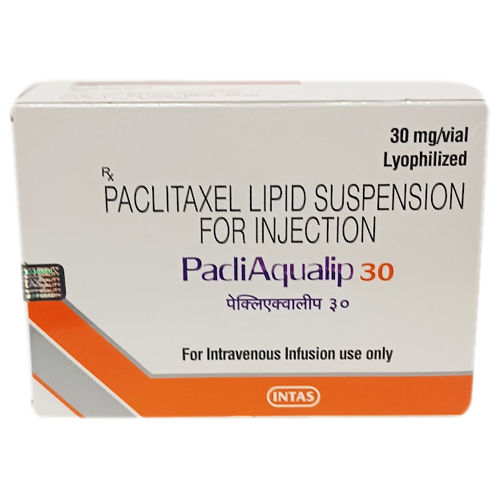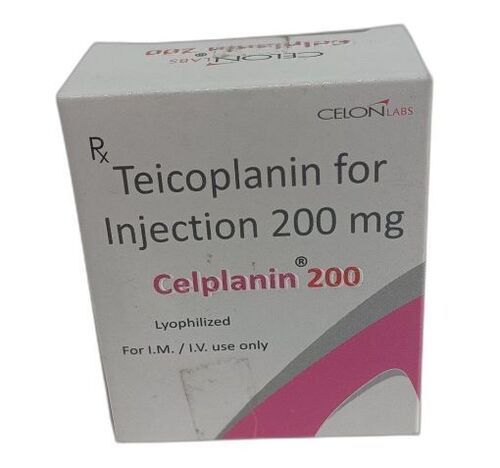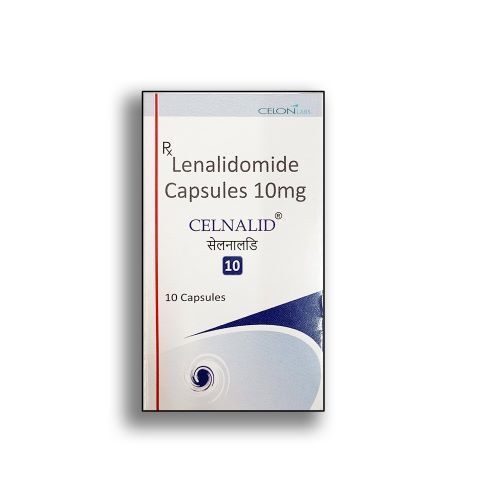Paclitaxel Lipid Suspension For Injection
Product Details:
Paclitaxel Lipid Suspension For Injection Price And Quantity
- 10 Pack
- 1300 INR/Pack
Paclitaxel Lipid Suspension For Injection Trade Information
- 1000 Pack Per Week
- 4 Days
- All India, South India, Central India, West India, North India, East India, Gujarat, Karnataka, Kerala, Lakshadweep, Mizoram, Meghalaya, Manipur, Andhra Pradesh, Bihar, Chandigarh, Daman and Diu, Goa, Jharkhand, Odisha, Punjab, Assam, Delhi, Dadra and Nagar Haveli, Andaman and Nicobar Islands, Arunachal Pradesh, Chhattisgarh, Haryana, Himachal Pradesh, Jammu and Kashmir, Madhya Pradesh, Maharashtra, Nagaland, Rajasthan, Sikkim, Tamil Nadu, Telangana, Tripura, Pondicherry, Uttar Pradesh, Uttarakhand, West Bengal
Product Description
Paclitaxel lipid suspension for injection is a medication used in the treatment of various types of cancer, including breast cancer, ovarian cancer, and lung cancer. It is a formulation of paclitaxel, a chemotherapy drug, combined with a lipid carrier to improve its solubility and delivery. Here's some information about paclitaxel lipid suspension:
1. Indication Paclitaxel lipid suspension is indicated for the treatment of advanced or metastatic breast cancer, ovarian cancer, and non-small cell lung cancer (NSCLC). It may be used alone or in combination with other chemotherapy drugs or treatments.
2. Mechanism of Action Paclitaxel works by interfering with the normal function of microtubules, which are structures involved in cell division. By stabilizing microtubules, paclitaxel prevents cancer cells from dividing and multiplying, ultimately leading to cell death.
3. Dosage Paclitaxel lipid suspension is typically administered as an intravenous infusion (injection into a vein). The dosage and frequency of administration may vary depending on factors such as the type and stage of cancer, overall health, and individual patient factors. The strength of the injection typically varies, but a common strength is 30 mg.
4. Side Effects Common side effects of paclitaxel lipid suspension may include nausea, vomiting, diarrhea, fatigue, hair loss (alopecia), decreased blood cell counts (anemia, neutropenia, thrombocytopenia), peripheral neuropathy (nerve damage), and allergic reactions. Patients may also experience infusion-related reactions, such as fever, chills, and flushing.
5. Monitoring Patients receiving paclitaxel lipid suspension therapy should be closely monitored by a healthcare professional for any signs of side effects or complications. Blood tests may be conducted regularly to monitor blood cell counts and liver function.
6. Precautions and Contraindications Paclitaxel lipid suspension should be used with caution in patients with liver problems, kidney problems, or pre-existing nerve damage. It is contraindicated in patients with a history of severe allergic reactions to paclitaxel or any of the components of the formulation. It should not be used in pregnant women or nursing mothers.
Paclitaxel lipid suspension is an important chemotherapy drug used in the treatment of various types of cancer. Its use should be guided by a healthcare professional experienced in the management of cancer. As with any chemotherapy medication, it's important to discuss the potential benefits and risks of paclitaxel lipid suspension with a healthcare provider before starting treatment.
frequently asked questions (FAQs) about paclitaxel lipid suspension for injection:
-
What is Paclitaxel Lipid Suspension for Injection?Paclitaxel lipid suspension is a medication used in cancer treatment. It is a formulation of paclitaxel, a chemotherapy drug, encapsulated in lipid nanoparticles to improve its solubility and delivery.
-
How is Paclitaxel Lipid Suspension Administered?Paclitaxel lipid suspension is administered intravenously (through a vein). The dosage and infusion rate are determined by the healthcare provider based on factors such as the type and stage of cancer being treated and the patient's overall health.
-
What Types of Cancer is Paclitaxel Lipid Suspension Used to Treat?Paclitaxel lipid suspension is commonly used in the treatment of various cancers, including breast cancer, lung cancer, ovarian cancer, and certain types of advanced or metastatic cancers.
-
What are the Common Side Effects of Paclitaxel Lipid Suspension?Common side effects may include bone marrow suppression (leading to decreased white blood cells, red blood cells, and platelets), hair loss, nausea, vomiting, diarrhea, fatigue, neuropathy (numbness or tingling in the hands and feet), and allergic reactions.
-
Who Should Not Use Paclitaxel Lipid Suspension?Paclitaxel lipid suspension may not be suitable for individuals with known hypersensitivity to paclitaxel or any of its components. It's important to discuss any existing medical conditions or medications with your healthcare provider before starting treatment with paclitaxel lipid suspension.
-
Can Paclitaxel Lipid Suspension Be Used During Pregnancy or Breastfeeding?Paclitaxel lipid suspension may harm an unborn baby if used during pregnancy. It is not recommended for use during pregnancy unless clearly needed. It's also not recommended for use while breastfeeding, as it may pass into breast milk and could harm a nursing infant.
-
How Effective is Paclitaxel Lipid Suspension in Treating Cancer?Paclitaxel lipid suspension has been shown to be effective in treating various types of cancer, either alone or in combination with other chemotherapy drugs or treatments. Its effectiveness can vary depending on factors such as the type and stage of cancer being treated and individual patient response.
-
Are There Any Drug Interactions with Paclitaxel Lipid Suspension?Paclitaxel lipid suspension may interact with certain medications, including other chemotherapy drugs or medications that affect liver enzymes. It's important to inform your healthcare provider about all medications, supplements, and herbal products you are taking before starting treatment with paclitaxel lipid suspension.
-
How Long Do I Need to Take Paclitaxel Lipid Suspension?The duration of paclitaxel lipid suspension treatment can vary depending on factors such as the type and stage of cancer being treated, overall health, and response to treatment. Your healthcare provider will determine the appropriate duration of treatment based on your specific situation.
-
Can Paclitaxel Lipid Suspension Cure Cancer?Paclitaxel lipid suspension is not a cure for cancer, but it can be an important part of managing the disease and controlling its progression. Treatment outcomes vary depending on factors such as the type and stage of cancer, overall health, and response to treatment.

Price:
- 50
- 100
- 200
- 250
- 500
- 1000+







 Contact Us
Contact Us Call Me Free
Call Me Free
